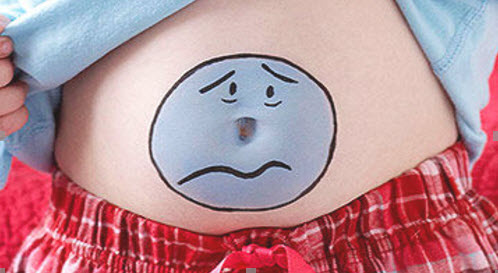I hope your week is going well. We’re going to make a few schedule changes due to popular demand – we do listen to you guys. This week we’ll be doing PEDS GI disorders and then PEDS Eye, ear and throat. Next week we’ll start a series for those who will be taking the NCLEX this summer and some tips for getting you prepared. Still working on the details of what we want to include for that. Then mid June or July we’ll go back to the PEDS. As always questions you can contact us.
Pediatric GI Disorders
This content is in Saunders.
Sixth Edition – Page 450 – Questions are on page 464
Seventh Edition – Page– 439 Questions are on page 453
Overview –
Power points –
www.austincc.edu/adnlev3/ol_pedi_gi/pp_pedi%20gi.ppt
Video – https://www.youtube.com/watch?v=c1SfLzXCOK4
Vomiting /Diarrhea –
Major concern with vomiting is dehydration, electrolyte imbalance and metabolic alkalosis. Acute diarrhea is also a dehydration concern especially in children less than five years.
Info – https://patient.info/doctor/gastroenteritis-in-children-pro
Medscape – http://emedicine.medscape.com/article/801948-overview
Cleft Lip and Cleft Palate
http://nursingcrib.com/nursing-notes-reviewer/maternal-child-health/cleft-lip-and-palate/
Important notes:
Cleft lip repair – usually 1 to 3 months old.
Cleft Palate 6 to 18 months. It may also call for several surgeries.
Medscape – http://emedicine.medscape.com/article/995535-treatment
Esophageal Atresia and Tracheoesophageal Fistula
http://emedicine.medscape.com/refarticle/186735-overview?src=refgatesrc1
Reflux Disease –
Poor weight gain is a symptom. Watch for complications.
http://emedicine.medscape.com/article/930029-overview
http://www.medscape.com/viewarticle/470698_7
Hypertrophic Pyloric Stenosis –
This stenosis normally develops in the first few weeks of life and begins with regurgitation that leads to vomiting (projectile) after feeding.
Parent teaching – https://www.cincinnatichildrens.org/health/p/pyloric-stenosis
Celiac Disease –
Celiac crisis can cause profuse watery diarrhea and vomiting. MAINTAIN a gluten free diet.
http://nursingcrib.com/nursing-notes-reviewer/celiac-disease/
Pt education – https://www.uptodate.com/contents/celiac-disease-in-children-beyond-the-basics
Appendicitis –
Abdominal pain that is most intense at McBurney’s point. https://en.wikipedia.org/wiki/McBurney%27s_point
http://nursestudy.net/2015/04/23/appendicitis-pathophysiology-podcast-and-nursing-care-plan/
Hirschsprungs Disease –
Most serious complication is enterocolitis (fever, explosive watery diarrhea).
Umbilical Hernia –
https://www.cincinnatichildrens.org/health/u/umbilical-hernia
Constipation and Encopresis –
http://www.medscape.com/viewarticle/462006_5
http://www.medscape.com/viewarticle/746563_3
Hepatitis –
https://www.urmc.rochester.edu/encyclopedia/content.aspx?ContentTypeID=90&ContentID=P02517
http://kidshealth.org/en/parents/hepatitis.html
Poisons –
1. Assess the child. (ABC’s treat if necessary).
2. Stop exposure to the poison.
3. ID the poison.
4. Prevent absorption of the poison.
5. Document
Remember treat the child first (ABC’s) then the poison.
https://medlineplus.gov/poisoning.html
Slides – https://www.slideshare.net/CaRDiosUrgeon/pediatrics-drug-poisoning
Educating – https://www.ucsfbenioffchildrens.org/education/preventing_poisioning_in_children/index.html
Intestinal Parasites
http://www.merckmanuals.com/professional/SearchResults?query=intestinal+parasites
Questions –
http://scrubsmag.com/nclex-practice-exam-set-5-pediatric-gastrointestinal-and-urinary-disorders/
Coming next – Eye, Ear and Throat April 27


